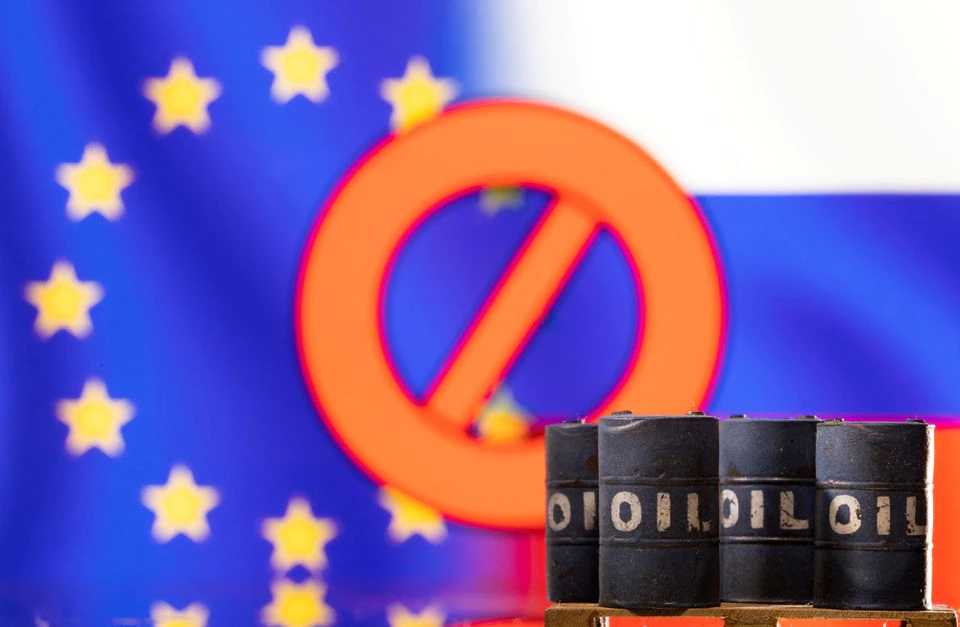The European Union proposed its toughest sanctions yet against Russia on Wednesday, including a phased oil embargo, as Kyiv said Moscow was intensifying an offensive in eastern Ukraine and close Russian ally Belarus announced large-scale army drills.
Nearly 10 weeks into a war that has killed thousands of people, uprooted millions and flattened Ukrainian cities, Russia was intensifying its assault, Ukraine’s defence ministry said, with nearly 50 air strikes carried out on Tuesday alone.
Russia also stepped up strikes on targets in western Ukraine, saying it was disrupting Western arms deliveries.
A new convoy of buses began evacuating more civilians from the ravaged southeastern port city of Mariupol, which has seen the heaviest fighting of the war so far and where Moscow said remaining Ukrainian forces remained tightly blockaded.
Piling pressure on Russia’s already battered $1.8 trillion economy, the European Commission proposed phasing out imports of Russian crude oil within six months and refined products by the end of this year, sending the price of Brent up 4% to more than $109 a barrel.
“(President Vladimir) Putin must pay a price, a high price, for his brutal aggression,” Commission chief Ursula von der Leyen told applauding EU lawmakers in Strasbourg.
The plan, if agreed by EU governments, would be a watershed for the world’s largest trading bloc, which remains dependent on Russian energy and must find alternative supplies.
With the Czech Republic, Bulgaria, Hungary and Slovakia all seeking more time to adapt, there was no immediate deal, an official familiar with the talks said. EU envoys were expected to move closer to agreement when they meet again on Thursday.
Brussels has also proposed freezing the assets of Patriarch Kirill, head of the Russian Orthodox Church, adding him to a draft blacklist of hundreds of individuals accused of supporting the war, a diplomat said on Wednesday.
The EU has yet to target Russian natural gas, used to heat homes and generate electricity across the bloc and harder to replace than Russian crude.
The Kremlin said Russia was weighing various responses to the EU plans, adding that the sanctions would increase costs for European citizens.
On the war front, Russian Defence Minister Sergei Shoigu renewed a warning that Moscow would seek to hit shipments of weapons into Ukraine by the United States and its NATO allies.
The Russian defence ministry said its forces disabled six railway stations used to supply Western arms to Ukraine’s soldiers in the east. It said they also hit 40 military targets including four depots storing ammunition and artillery.
Ukraine’s defence ministry said Russian strategic bombers fired 18 rockets “with the aim of damaging our country’s transport infrastructure.”
Russia published what it said was video footage of two Kalibr cruise missiles being launched from the Black Sea and said they hit unspecified ground targets in Ukraine.
Announcing its surprise military drills, Belarus’s defence ministry said they posed no threat to its neighbours, but Ukraine’s border service said it could not rule out that Belarusian forces might join Russia’s assault.
“Therefore, we are ready,” spokesman Andriy Demchenko said.
Some Russian forces entered Ukraine via Belarus when the invasion began on Feb. 24 but Belarusian troops have not been involved so far in what Moscow calls a “special military operation” to disarm Ukraine and defend its Russian-speaking population from fascists.
Kyiv and its Western backers say Moscow’s fascism claim is an absurd pretext for an unprovoked war of aggression that has driven more than five million Ukrainians to flee abroad.
The Kremlin on Wednesday dismissed speculation Putin would formally declare war on Ukraine and decree a national mobilisation on May 9, when Russia commemorates the Soviet Union’s victory over Nazi Germany in World War Two. Putin is due to deliver a speech and oversee a military parade on Moscow’s Red Square.
The convoy leaving Mariupol, organised by the United Nations and the International Committee of the Red Cross, was heading for the Ukrainian-controlled city of Zaporizhzhia, Donetsk Governor Pavlo Kyrylenko said.
He did not say how many buses were in the convoy or whether any more civilians had been evacuated from the vast Azovstal steel works, where the city’s last defenders are holding out against Russian forces that have seized Mariupol.
The first evacuees from Azovstal arrived by bus in Zaporizhzhia on Tuesday after cowering for weeks in bunkers beneath the sprawling Soviet-era works.
The mayor of Mariupol, Vadym Boichenko, reported heavy fighting at Azovstal on Wednesday and said contact with the Ukrainian fighters there had been lost. More than 30 children are among the civilians there awaiting evacuation, he added.
Russia now claims control of Mariupol, once a city of 400,000 but largely reduced to smoking rubble after weeks of siege and shelling. It is key to Moscow’s efforts to cut Ukraine off from the Black Sea – vital for its grain and metals exports – and link Russian-controlled territory in the south and east.
Moscow has deployed 22 battalion tactical groups near the eastern Ukrainian town of Izium in a possible drive to capture the cities of Kramatorsk and Severodonetsk in Donbas, British intelligence said. Reuters could not verify the report.
The cities are in the eastern Donbas region – Russia’s main target along with Ukraine’s southern coastline since Moscow failed to take Kyiv, the capital, in the weeks after it invaded.
Ukraine remains defiant despite the unrelenting assault.
“Russia struggles to advance and suffers terrible losses. Thus the desperate missile terror across Ukraine. But we are not afraid and the world should not be afraid either,” Ukrainian Foreign Minister Dmytro Kuleba said on Twitter.
“More sanctions on Russia. More heavy weapons for Ukraine. Russia’s missile terrorism must be punished.”


